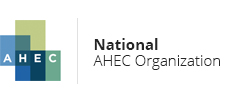If you want to learn everything about the human body, and use that knowledge to help diagnose and treat patients, then you should think about becoming a physician assistant! Also known as a PA, physician assistants practice medicine on a team supervised by doctors and surgeons. They are able to examine patients, diagnose injuries and illnesses, and treat the patients, which includes prescribing medications. Physician assistants can work in a variety of environments, ranging from small offices to hospitals to urgent care. In a rural setting, a PA might act as a primary care “physician,” and confer with their supervising doctor as the law requires.
According to the Bureau of Labor Statistics, physician assistants held about 86,700 jobs in 2012. By 2022, this number is expected to increase by 38%, which is much faster than the average career. There will be an increased need for healthcare professionals, for reasons including a growing population and increased chronic disease. In 2012, the median pay of a physician assistant was $90,930 per year, and it’s likely to increase every year.
In order to become a PA, one must receive a Master’s degree from a nationally accredited PA program. There are 170 schools in the US that offer these programs. These programs require up to 1,000 hours of direct patient contact that can come in the form of an emergency medical technician, certified nursing assistant, or other healthcare jobs. Schools like to see people with experience, people who know for sure that they want to work in the healthcare field.
It typically takes about 2 years to obtain a Master’s degree from PA school. The first year is usually classroom-based, while the second year is full of clinical rotations in various fields. From this, you’ll be able to get an idea of what specialty you would like to choose. Luckily, you can switch specialties throughout your career! These specialties include surgery, cardiac, family medicine, emergency medicine and pediatrics. To keep up with the always changing medical field, PAs must have 100 hours of continued education every 2 years, and will be required to retake a certification exam every 10 years.
Personally, I am on track to become a physician assistant and I can’t wait to start my career as one. Going into college, I had no idea what I wanted to do. I knew that I loved science, but I was unsure of what careers were available. I started doing internships in the medical field, including one with an orthopedic surgeon, and I learned that I definitely wanted to be a healthcare professional. Still, I didn’t know what exactly I wanted to do. I spent time interviewing doctors, PAs, medical students, PA students, and even nurses. The one big thing I learned was that every single PA I spoke with absolutely LOVES their career. They wouldn’t change a thing about it. I wanted to have that passion for my career, and I wanted to love going into work every day, so the summer before my senior year I officially decided that I would attend PA school. In order to get my patient contact hours, I am currently taking an EMT class and will most likely take 2 years off before I pursue my Master’s degree. I am enjoying taking this EMT class, and I’m glad to be learning new things that will help me in my career as a PA.
Are you considering PA school? Leave a comment!
